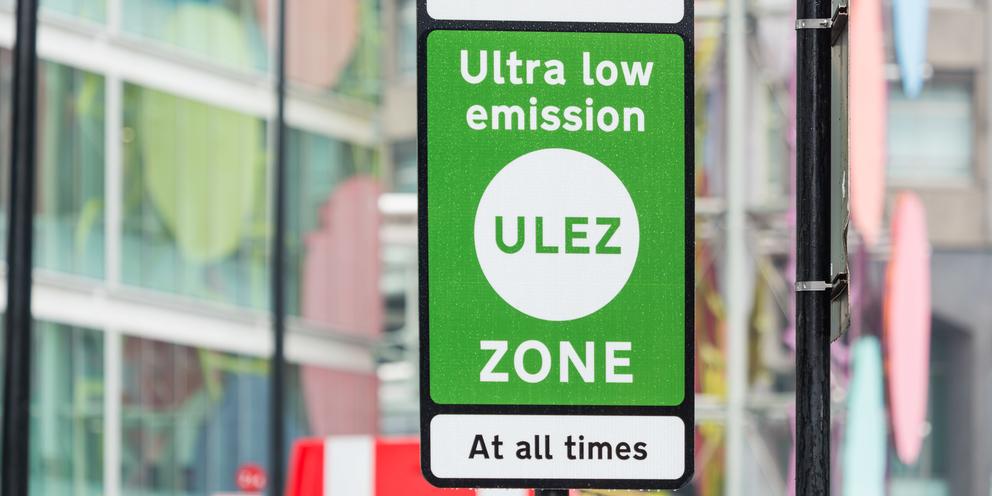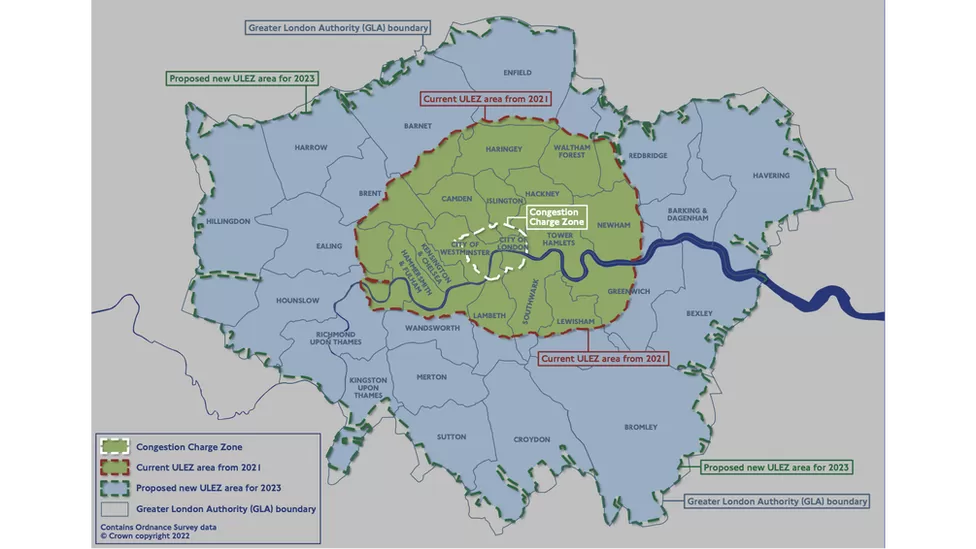
Photo: London Mayor’s Office
London expands ultra low emission zone
29 November 2022
by Christopher Carey
London’s Ultra Low Emission Zone (ULEZ) is set to be expanded to cover the entire city.
From August 2023 the zone will cover all of the UK capital’s 32 boroughs, with a £12.50 (US$15) daily charge levied on the most polluting vehicles.
London Mayor Sadiq Khan has said the expansion is necessary to tackle the “triple challenges” of air pollution, the climate emergency and congestion.
“The ULEZ so far has been transformational, reducing harmful pollution levels by almost a half in central London,” said Mayor Khan.
“But there is still far too much toxic air pollution permanently damaging the health of young Londoners and leading to thousands of early deaths every year, with the greatest number of deaths in the outer London boroughs.”

Pollution decrease
Introduced in 2019, the ULEZ was first extended in 2021, followed by another extension in March of this year.
The zone operates 24 hours a day, 7 days a week, every day of the year, except Christmas Day.
For cars, smaller vans, motorbikes and other lighter vehicles, the charge is £12.50, while larger non-compliant vehicles such as lorries, buses and coaches face a £100 levy.
Most petrol cars registered after 2006 or diesel cars from 2016 are exempt from the charge.
A report from the Mayor’s Office in July said that roadside pollution levels in central London were 44 percent lower than if the ULEZ had not been introduced, while in inner London – outside the congestion charging zone – they were 20 percent lower.
It is estimated that extending the zone to the whole of Greater London could reduce NOx emissions from cars and vans by between 285 and 330 tonnes, cut carbon dioxide emissions in outer London by between 135,000 and 150,000 tonnes, and reduce the most polluting cars on the roads by as many as 40,000 a day.
Opposition
But the plans have drawn criticism from some – with approximately 60 percent of respondents to a public consultation opposing the expansion.
To counter the financial impact on those affected, an improved £110 million scrappage scheme is set be introduced, and the Mayor’s Office says there will be more buses available in the outer suburbs.
A recent report concluded that in order to meet the target of getting to net-zero in London by 2030, car traffic must reduce by at least 27 percent in the capital by the end of the decade.
The Mayor’s Office also cited Inrix analysis which found that vehicle congestion cost the UK capital £5.1 billion last year.














